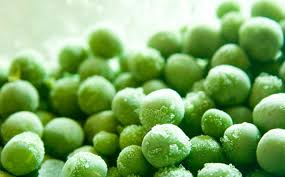
Do you find yourself in the frozen vegetable section of the supermarket more than the fresh vegetable section? Is this necessarily a bad thing? Take a look at my thoughts as featured on ‘ABC Health & Wellbeing’.
With life becoming increasingly frantic for many of us, frozen vegies are a very convenient healthy meal option stashed in many freezers. But are they as good for us as fresh vegies?
“Whether fresh is better [than frozen] depends on how fresh the vegies actually are,” says Melanie McGrice, a spokesperson for the Dietitians Association of Australia.
“Picking vegies from your own vegie garden out the back has to be the optimal situation,” she says.
“[But] in Australia vegies often have to travel a very long distance to get to us. This can take several days. We know that the longer it takes to get fresh food to us from the farm, the more the nutrients [in the food] slowly decrease.”
On the other hand, the nutrients in frozen produce are sealed into the veg during the freezing process.
“I’m not saying fresh fruit and veg is not a good choice. We are very privileged to have the variety of fruits and vegies that we grow in Australia. But frozen vegetables are certainly a valid option.”
Vitamins can be ‘frozen in’
It’s the water soluble vitamins including vitamin C and some of the B vitamins that tend to be lost from our fresh produce the longer the veg hangs around.
“For example, if you keep spinach at room temperature (20°C) for two days it loses half of its vitamin C,” explains Tara Diversi, a lecturer in the Human Nutrition Unit of the University of Sydney.
Vegetables are usually snap frozen very soon after they are picked. Special machinery is used to get the produce to -18°C in minutes, says Diversi. The nutrients are ‘frozen in’ during this process, meaning you can quite easily have more vitamins in a frozen vegetable than in its ‘fresh’ counterpart.
But there is more to fruit and vegies than just vitamins.
“One of the biggest reasons we get people to eat fruit and vegies is to get their fibre,” she says.
The fibre content doesn’t deteriorate easily which means that week-old fresh vegies still have value despite lowered vitamin levels.
“If it’s a choice of eating old vegetables or no vegies at all, old vegies are fine.”
And in case you were wondering, freezing doesn’t affect the fibre content of veg, McGrice adds.
Preparation is key
Both McGrice and Diversi say that how you cook your vegies is far more important than whether they are fresh or frozen.
“Boiling vegies in a large amount of water for a long time lets the vitamins leach out into the water,” says McGrice.
Regardless of whether you are cooking fresh or frozen vegies, use as little water as you can and cook them for a short time. Steaming or microwaving vegies are much better options than boiling.
And if you are using frozen veg McGrice suggests checking the label of the packet.
“Usually they just contain the vegetable, but sometimes, particularly if there is a sauce, they may contain added salt and sugar,” she says.
(This can be a particular issue if you’re using canned vegetables, which are much more likely to include added salt.)
What to put in your trolley?
If you are doing a weekly shop, McGrice recommends buying some fresh vegies and some frozen.
“Start the week by eating the fresh vegies”, she suggests, “and end it by eating the frozen”.
Diversi recommends shopping two or three times a week for your fresh vegies so that they don’t spend too long in the fridge at home.
Here are some points to consider when you’re weighing up the pros and cons of fresh over frozen veg.
Fresh veg
•Can taste better than frozen.
•Usually has a better texture.
•If you’ve picked it straight from the garden, it will be bursting with nutrients.
•But produce can be more than a week old by the time we eat it.
Frozen veg
•Nutrients are ‘frozen in’ soon after picking.
•Convenience – and it can store for months.
•Allows us to have vegies and fruit that are out of season
•Adds variety to our diet.
•After defrosting, vegies can have a soggy texture, because ice crystals damage the vegetable cell walls.
•Vegies with high water content – such as bok choy or lettuce – do not freeze well.
As seen in







Get nutritious recipes
straight into your inbox!
Send your details now to receive Melanie’s recipes designed around a range of dietary needs including improved fertility, weight loss, general heath and wellbeing through improved nutrition. Receive the recipes specific to your needs.
